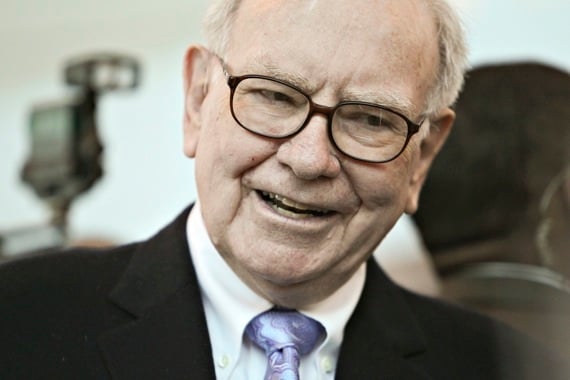GOP garners enough votes to block Administration's proposal; 'not exactly a grand idea'
The U.S. Senate blocked the proposed Buffett rule that would set a minimum 30 percent federal tax rate for the highest earners, stopping the legislation for now while an election-year debate on tax policy and income inequality continues.
The 51-45 vote yesterday in Washington fell short of the 60 needed to advance the measure, and Republicans derided the Buffett rule as a political stunt. President Barack Obama has been campaigning for the legislation across the country, maintaining that it's unfair that some high-income taxpayers use deductions and preferential tax treatment of investment income to pay lower rates than many middle-income wage earners do.
“Let's be clear,” said Senator Pat Toomey, a Pennsylvania Republican. The proposal “is not a serious attempt to deal with tax reform or the budget.”
The Republican roadblock of the measure may intensify partisan wrangling as Democrats seek to take advantage of public support for the idea. A Gallup poll last week showed about six in 10 voters favor the idea.
Senator Charles Schumer of New York said his fellow Democrats will return to the issue repeatedly and propose the minimum tax to pay for such items as a research and development tax credit or spending for college aid.
‘Common Sense' Idea
“Republicans want to give even further tax breaks to millionaires and billionaires, while we think the very wealthy should share in more sacrifice so the burden doesn't fall on the middle class,” Schumer said.
In a statement released after the vote, Obama criticized Republicans for blocking what he called a “common sense” idea.
“At a time when we have significant deficits to close and serious investments to make to strengthen our economy, we simply cannot afford to keep spending money on tax cuts that the wealthiest Americans don't need and didn't ask for,” he said.
Speaking to Tea Party supporters in Philadelphia last night, Republican presidential candidate Mitt Romney said the Buffett rule would do little to help the struggling economy or to reduce the federal budget deficit.
“Someone calculated that the taxes he would raise in his Buffett rule would pay for 11 hours of government,” Romney said of Obama at an anti-tax rally. “This is not exactly a grand idea.”
Along Party Lines
The vote on advancing the measure was along party lines, with two exceptions. Republican Susan Collins of Maine voted to move the bill forward and Democrat Mark Pryor of Arkansas voted against it. Four senators -- one Democrat, two Republicans and independent Joseph Lieberman of Connecticut -- were absent.
“There is no disputing that the wealthy should pay their fair share in taxes,” Pryor said in a statement. “This inequity should be fixed as part of broad tax reform, not as a political ploy meant to score points.”
The bill, sponsored by Senator Sheldon Whitehouse of Rhode Island, would impose a minimum tax rate of 30 percent for households with adjusted gross incomes of at least $2 million. Those with at least $1 million in income would pay the tax on a sliding scale to bring their rates closer to 30 percent.
The calculation includes payroll taxes as well as a 3.8 percent tax on unearned income set to take effect for high earners next year. Taxpayers would still be able to deduct charitable contributions.
High-Income Households
The tax would affect a minority of high-income households that manage to pay relatively low rates because of deductions and preferential tax rates on investment income. The bill is named for billionaire investor Warren Buffett, who says he pays a lower tax rate than his secretary.
The bill would raise $47 billion over the next decade, assuming that existing income tax cuts are allowed to expire as scheduled at the end of 2012. If those tax cuts were extended, the measure would raise about $162 billion, according to Whitehouse's office.
By 2015, the plan would impose higher taxes for 217,000 households, according to the Tax Policy Center, a nonpartisan research group in Washington.
According to administration data, the median effective tax rate for the middle 20 percent of U.S. taxpayers is 13.3 percent, including income, payroll and corporate taxes. For the top 1 percent of taxpayers, the rate is 29.6 percent, according to the 2012 Economic Report of the President. Still, 10 percent of high-income households have tax rates of 8.7 percent or less.
Equal Outcomes
Democrats are seeking equality of outcomes instead of equality of opportunity, said Senator John Barrasso, a Wyoming Republican.
“Tax increases won't help our fragile economy, and they won't put the brakes on Washington's out-of-control spending,” he said.
The Republican-controlled House of Representatives is also using today's tax-filing deadline to highlight tax policy. The House is scheduled to vote later this week on a $46 billion, one-year tax cut for businesses with fewer than 500 employees.
Under the bill sponsored by Majority Leader Eric Cantor, a Virginia Republican, companies would be able to deduct as much as 20 percent of their profits.
--Bloomberg News--







